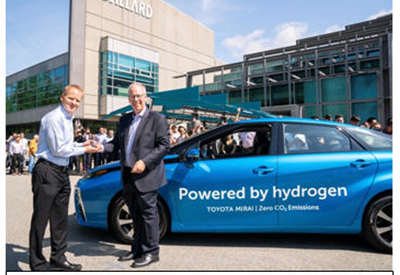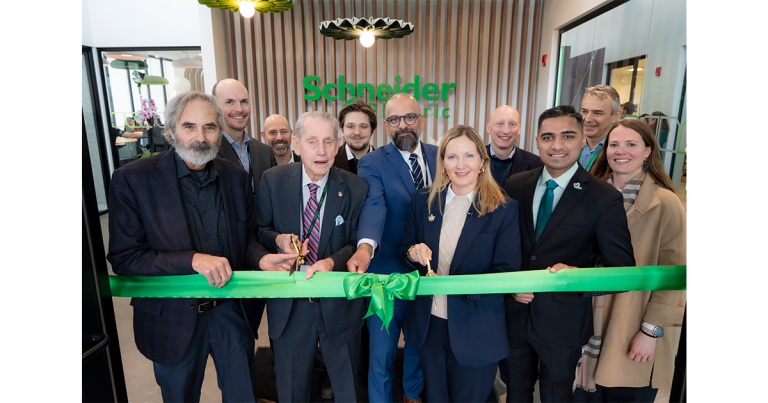Ballard Power Systems Announces Purchase of B.C.’s First Fleet of Hydrogen-Powered Fuel Cell EVs

Aug 8, 2019
Ballard Power Systems announced that it has arranged for several Ballard employees to purchase B.C.’s first fleet of fuel cell electric vehicles (FCEVs) from Toyota Canada. Ballard employees are expected to purchase the Toyota Mirai zero-emission FCEVs powered by hydrogen in 2019, with initial vehicle deliveries completed today.
“Electrification of transportation is a global megatrend that is needed to help mitigate the impact of climate change and improve air quality,” said Randy MacEwen, President and CEO of Ballard Power Systems. “Zero-emission fuel cell electric vehicles, or FCEVs, are a key part of the electric vehicle solution that will positively change the lives of the next generation. For 40 years, Ballard has been relentlessly developing and improving fuel cell technology, so we’re extremely proud that dedicated Ballard employees have agreed to purchase B.C.’s first fleet of fuel cell electric cars.”
For decades, Canadian companies like Ballard have been playing leading roles in the development of a global hydrogen society, and the movement has recently gained momentum in British Columbia. The country’s first publicly accessible retail hydrogen station opened in Vancouver last summer, with another station poised to open in Burnaby shortly. Earlier this year, Natural Resources Canada and the B.C. government announced they are contributing a combined $3 million to build two new retail hydrogen refueling stations in the province’s Lower Mainland, and it is expected that Greater Vancouver and Victoria will have a network of six stations by 2020.
With the Mirai now available for purchase by fleet operators at 12 authorized Mirai dealerships in the Vancouver area, Toyota is the first automaker to bring hydrogen FCEVs to Canada en masse. The company has been working with other hydrogen stakeholders across Canada to put in place the necessary fueling infrastructure, training and service to support the sale of FCEVs.
The Mirai, which means “future” in Japanese, is a zero-emission FCEV that is powered by hydrogen fuel cells, uses no gasoline and emits only water vapor from its tailpipe. With performance that competes with traditional internal combustion engines, the Mirai boasts an approximately 500km range and refuels in about five minutes. This range – and no need to wait hours for a charge – means there is no compromise required for drivers: they can drive a FCEV without changing their driving or fueling habits.
Electrified vehicles will be a huge part of Toyota’s global mandate going forward. By 2030, every Toyota and Lexus model will be a dedicated electrified model or have an electrified option, and 50% of Toyota’s global sales (about 5.5 million vehicles per year) will be electrified. One million of them will be zero-emission vehicles.

















